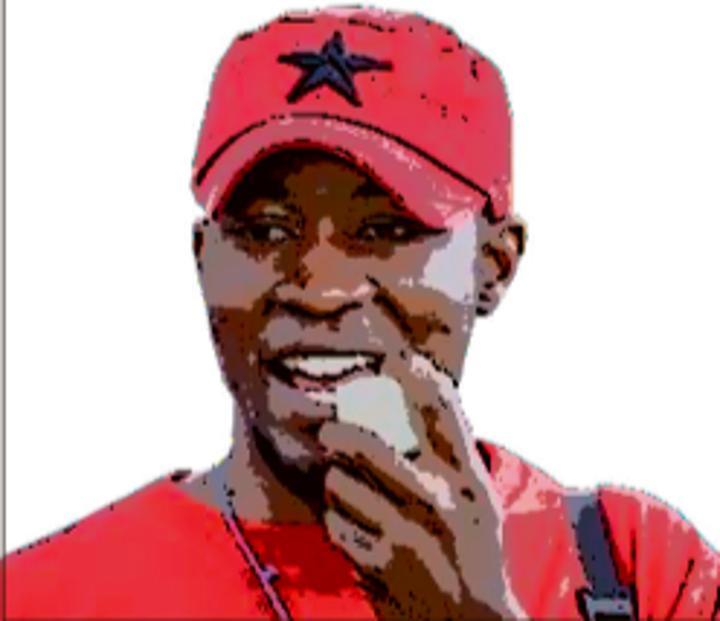Africa-Press – Namibia. BEFORE 11 SEPTEMBER 2001, the dominant view was that states are the only important factors in international politics. Despite isolated protests from constructivist scholars, arguing for consideration of norms and identity, scholars and practitioners influenced by the political realism of Niccolo Machiavelli and Hans Morgenthau continued to urge international politics students to less-privilege non-state actors. Morgenthau dismissed constructivist submissions as inconsequential. To him, international politics is an autonomous exclusive sphere where states pursue national interests.
On 11 September 2001, when a non-state actor, al Qaeda, inflicted enormous harm on the United States – killing close to 3 000 people – this changed dramatically. The US declared its ‘War on Terror’, going after non-state actors. Those previously uninterested in identity, norms and molarity of non-state actors became interested. The Americans learned from the tragedy and began rewiring the world. Its War on Terror was forced on everyone. Those who disagree must visit Lossen Street in Windhoek, housing the ombudsman’s office, which was closed for more than 10 years at the behest of the US. What is clear is that the US learned from their tragedy and took steps to avoid similar occurrences.
During World War II, more than six million Jews were killed at Auschwitz in what is known as the Holocaust. In 1952, West Germany under Konrad Adenauer agreed to pay the Jews three billion marks, with the Jewish diplomatic organisation, the World Jewish Congress receiving 450 million marks. From this tragedy, the Jews organised and elevated themselves to a powerful political, economic and social position to ensure that these tragedies never recurred.
After independence in 1966, Botswana understood the need to reverse colonial economic arrangements. The country ensured that Debswana, a diamond mining company owned by the government and De Beers in equal measure – 50/50 – did not stop at equal shares as Namibia did with Namdeb. It obtained 15% shares in De Beers itself. By implication, Botswana is a shareholder in Namibian diamonds. From the tragedy of colonialism, Botswana positioned itself as an economic architect of its destiny. WHAT ABOUT NAMIBIA?
Last week, 14 people died when a minibus and a sedan collided near Okahandja. President Geingob offered his condolences and cautioned drivers to observe and respect traffic rules. On 17 March 2019, 13 passengers burned to death when two mini-buses collided between Otavi and Tsumeb. Geingob released a similar statement at the time. In August 2006, president Pohamba released a message of condolences that urged Namibians to respect traffic rules after 12 people died when a mini-bus collided with two pickup trucks on the Kalkrand/Rehoboth road. Fifteen years later, one would believe that the only thing that changes is the number of victims and the president’s name. The 1849 words of Jean-Baptiste Karr reverberate: “The more things change, the more they stay the same”. This is a microcosm of our society.
In March 2018, Saima Thomas and her three-year-old son Lukas Shindinge died when floods washed away their shack in Windhoek’s informal settlements. Nehemia Shindinge, her partner, managed to save their two-day-old son. As activists, we organised a bed and other goods for Shindinge and his baby. Following our visit, government officials, including the prime minister, rushed to make similar donations. About three years later, households in riverbeds remain in Namibia’s informal settlements. A recurrence is possible.
Before the 26 July 2020 Twaloloka fire that left more than 200 people homeless at Walvis Bay, shack fires were common. On 28 January 2014, about 30 people were left homeless when their shacks caught fire. Annalie Ganases burned to death. There was no decisive intervention. If elections had not been six months away, one wonders what the response would have been. Shack conditions remain the same. A recurrence is possible.
In March 2012, Johannes Shapange (22), a University of Namibia student, died in the hostel after he was stabbed 14 times by a fellow student. Two years later, in May 2014, Lucia Kaunamwene (22) committed suicide ostensibly hours before her graduation. Two years later, in July 2016, a final year student Jino Mbomboro (23) died after jumping from a second-floor window of his hostel room. In February 2019, Helao Hamuteta (22), a third year student, died when she was repeatedly stabbed and her throat slit by her alleged lover. These cases of students as victims and perpetrators, some of which borders on mental health, would have one believe that the university developed internal preventative/responsive/alert capacity. With the recent neoliberal restructuring that saw the dean of students’ office reduced to managerialism, this capacity is doubtful.
‘FATHER CHRISTMAS’
In 1995, GIPF introduced the Development Capital Portfolio (DCP) enabling the distribution of more than N$ 600 million to 21 elite connected companies. Most of these companies were later liquidated or their debts written off. In short – money got lost. Like the DCP that enabled GIPF to Father Christmas N$600 million to cronies between 1995 and 2005, the Marine Resources Amendment Act was passed in 2015 to enable the biggest billion-dollar-corruption in post-colonial Namibia.
Five years later, legislation was passed that removed the age limit of the Bank of Namibia’s governor to benefit Johannes !Gawaxab. The new legislation also provided for double deputy governors. This presented an opportunity to remove Leonie Dunn, former director of the Financial Intelligence Centre (FIC), and appoint her as a deputy governor. Dunn’s removal/promotion is political chess par excellence.
Namibia doesn’t seem to learn from the tragedies of corruption. The same modus operandi persists – Namibians and their leaders seem to be in some modus vivendi whose end result is in the realm of speculation.
In the final analysis, Namibia seems to be a country only concerned with today – a now society, a society that continues to suffer the same, familiar and historical pain. In the community of nations, such societies are not taken seriously beyond geography and metaphysics. From our inertness we must move towards a society of tomorrow, a society that learns from the past and present to shape tomorrow. In 2022, may we work hard in moving towards this society – learning from tragedies to avoid or mitigate the repeat of similar events.
For More News And Analysis About Namibia Follow Africa-Press






